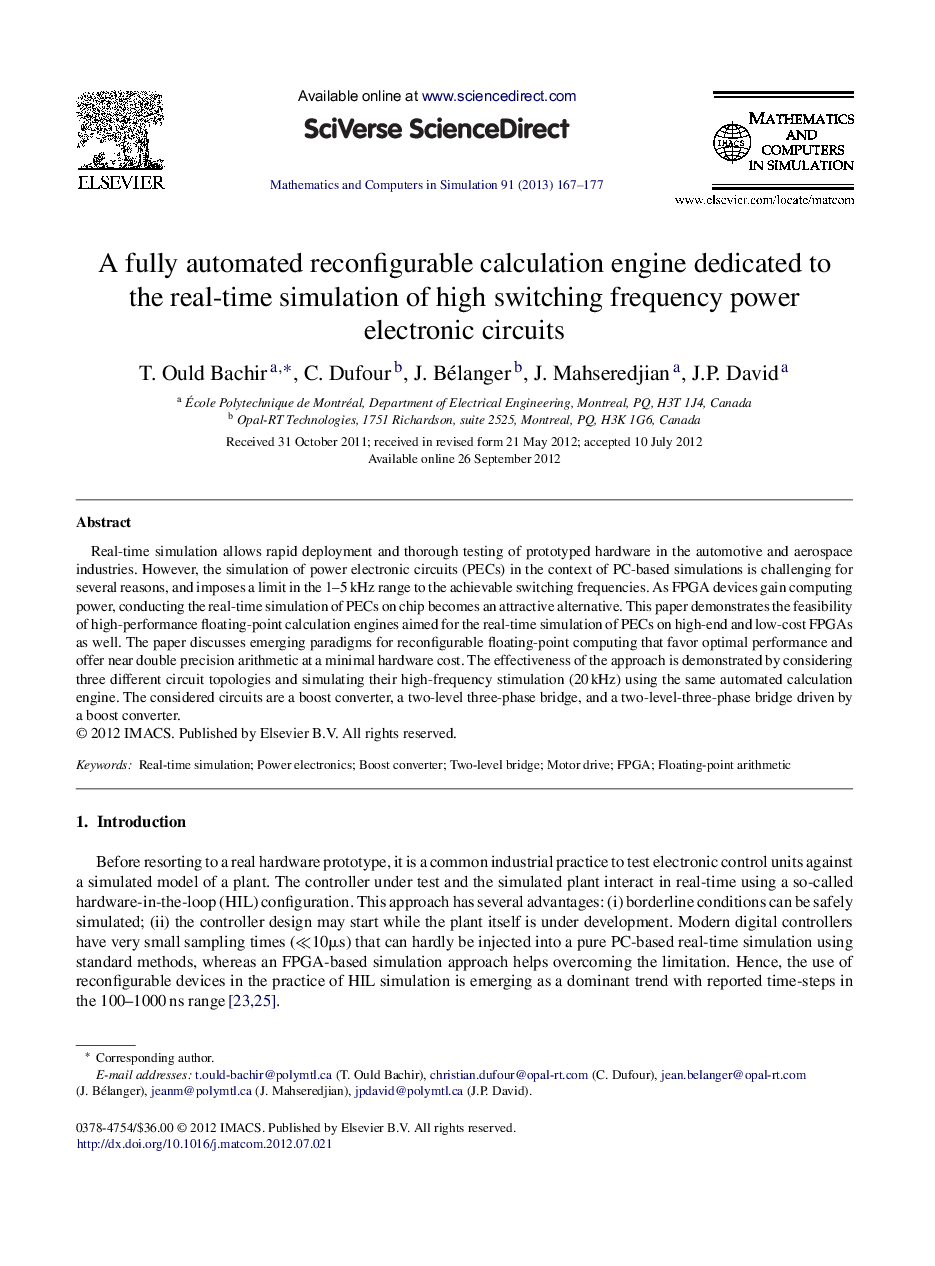| Article ID | Journal | Published Year | Pages | File Type |
|---|---|---|---|---|
| 1139491 | Mathematics and Computers in Simulation | 2013 | 11 Pages |
Real-time simulation allows rapid deployment and thorough testing of prototyped hardware in the automotive and aerospace industries. However, the simulation of power electronic circuits (PECs) in the context of PC-based simulations is challenging for several reasons, and imposes a limit in the 1–5 kHz range to the achievable switching frequencies. As FPGA devices gain computing power, conducting the real-time simulation of PECs on chip becomes an attractive alternative. This paper demonstrates the feasibility of high-performance floating-point calculation engines aimed for the real-time simulation of PECs on high-end and low-cost FPGAs as well. The paper discusses emerging paradigms for reconfigurable floating-point computing that favor optimal performance and offer near double precision arithmetic at a minimal hardware cost. The effectiveness of the approach is demonstrated by considering three different circuit topologies and simulating their high-frequency stimulation (20 kHz) using the same automated calculation engine. The considered circuits are a boost converter, a two-level three-phase bridge, and a two-level-three-phase bridge driven by a boost converter.
